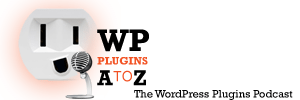 The Weekly round up of news, tips, and information to help you create the best possible WordPress website.
The Weekly round up of news, tips, and information to help you create the best possible WordPress website.
This is a weekly round up of WordPress news I have accumulated from across the web. Some old, some new, but always interesting. The new relates to WordPress and sometimes other areas of the web. It often has a focus on security and more.
We try to have news here that is important to help you with your website as well as news from the #wpdrama scene and more to share.
Some of the news here will be of interesting links to not only articles but training materials and other sources I can find online that will help you create a better WordPress website.
This week we have the following news for you.
Why I Yanked W3 Total Cache Off My Recommended Plugins List
That’s it. I’ve had it with the W3TC plugin. See why I won’t use it again and advise you don’t either.
No free caching plugin holds a candle to the configuration options in W3TC.
In fact, high traffic sites without those options actually incur more caching and server load and perform worse than if they had no caching plugin at all.
W3TC was even a top 3 winner in my head-to-head caching plugin test.
The plugin has been around for years and has over 1 million installs.
Yet the developer, Frederick Townes, has never seen fit to make it any more than a Beta release.
I guess keeping it free and in Beta is how he excuses updating it when he feels like it instead of when the plugin, and its users actually need it. Read original article here…. blogaid.net
9 Reasons Why WordPress Freelancers Need a Daily Schedule (and How to Make One)
I think that if there is the one major drawback to working as a freelancer (WordPress or otherwise), it would be the temptation factor. The temptation to turn on your TV for 15 minutes while you eat a warmed-up burrito. That temptation to nap with your dog after a particularly difficult assignment. That temptation to stay in your jammies all day because they’re just so dang comfortable.
Let’s face it, when you work as a freelancer, it can be tempting to sink into a rut and get way too comfortable. Getting too lax can mean you miss deadlines and turn in poor quality work. And that’s bad for business.
My personal recommendation, which also happens to be supported by a number of experts, is that you create a schedule—and stick to it. Every day. Every week. For as long as it takes for it to become like second nature. Read original article here…. premium.wpmudev.org
This week we have the following Security News for you.
WordPress Is Now on HackerOne, Launches Bug Bounties
WordPress now has its own official HackerOne account where security researchers can responsibly disclose vulnerabilities to the security team. The project’s page was previously listed under Automattic’s profile before HackerOne launched its free community edition for open source projects. WordPress has now transitioned to its own account, which also includes sister projects BuddyPress, bbPress, GlotPress, and WP-CLI, along with all of their respective websites.
“We have about 40 people with access to triage reports, although, like most volunteer groups, not everyone is usually triaging at the same time,” Campbell said.
“Bounties are calculated based on bug severity, the product or site it’s on (WordPress core being weighted more heavily than say the swag store), and also the quality of the report,” Campbell said. Automattic is sponsoring the bounty payouts on behalf of the WordPress project. Read original article here…. wptavern.com
Abandoned WordPress Plugins Can Make Your Site Vulnerable
Wordfence is one of the first plug-ins I install when I set up a WordPress site. And their blog is a great source of information on current vulnerabilities and exploits. They have posted a list of 22 Abandoned WordPress Plugins with Vulnerabilities. And while the list is interesting, some of the other data they have unearthed is a cause of concern.
More than 10% of the plug-ins on WordPress’ books haven’t been updated in over seven years. Read original article here…. lifehacker.com.au
And now for something older in the past article collections.
Free Webinar – 3 Phases of SEO and Why You Need to DIY the First 2
The goal of SEO is to rank high enough on Google to get more traffic to your site.
There are 3 phases to SEO to help accomplish that.
Unfortunately, too many site owners start with Phase 3, which involves ranking tactics, and they wonder why their hard work isn’t paying off.
Keyword stuffing went out of use in 2013.
Yet, ranking for a single keyword or phrase is what most site owners think of when it comes to on-page SEO. Read original article here…. blogaid.net


